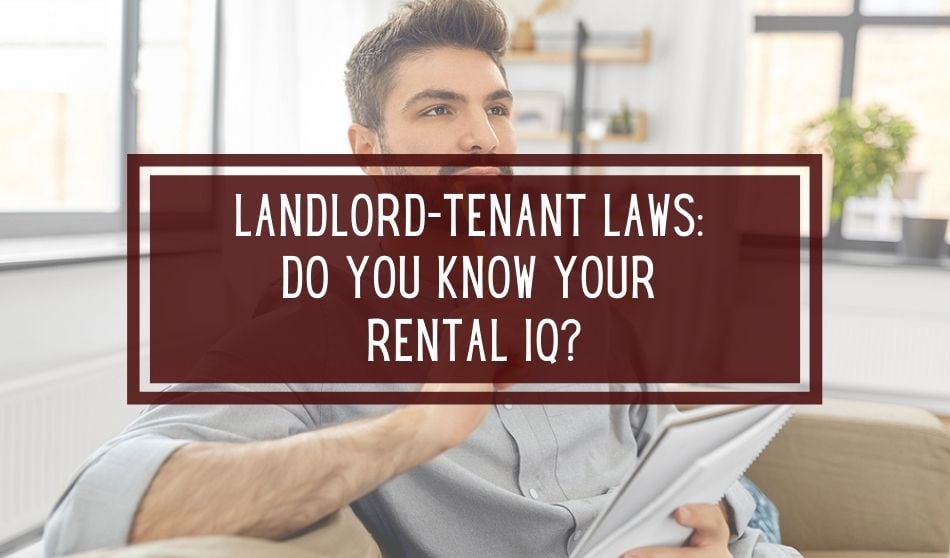
In a survey published by Zillow, a surprising amount of landlords revealed they do not fully understand their rights or legal obligations regarding landlord-tenant laws. According to Zillow, as much as 50% of surveyed landlords do not know basic rental laws.
Zillow also asked current renters similar questions and found they know slightly more than private landlords but not much – 47% of renters lack understanding of basic rental laws, compared to 50% of landlords.
Both landlords and renters are most familiar with legislation regarding discriminatory advertising, rental repairs and maintenance, and how to end a month-to-month rental agreement.
Landlords and renters are most confused about laws concerning:
- Security deposits, credit, and background checks
- Privacy and access rights
- Early lease termination
Below is an example of a question taken from Zillow’s survey that would reveal a landlord’s understanding of his rights regarding background checks:
Question: As a landlord, I am allowed to reject an applicant if I discover he or she has been convicted of illegal drug use while living in a previous rental.
Answer: FALSE.
Explanation from Zillow: While you may reject an applicant for any other criminal conviction, you cannot reject someone with a conviction for drug use; you can, however, reject a person who has been convicted of manufacturing or selling drugs, or who currently uses illegal drugs.
Carey Armstrong, Zillow’s director of rentals, told Zillow in an article posted on the company’s blog, “It’s concerning that so many renters and landlords are signing a legal contract without fully understanding their basic rights. In doing so, landlords and renters could be setting themselves up for future disputes and legal costs. While rental laws vary by state and local jurisdiction, there are some important rules that affect just about everybody. Every landlord and renter should take time to research and understand their rights.”
You can find out how knowledgeable you are about rental laws and trends here: Take Zillow’s Rental IQ Quiz.
As a landlord, understanding your rights and legal obligations will help you protect yourself and your investment property.
Who is responsible for landlord-tenant laws?
Landlord laws are established to protect both landlords and their tenants. Laws that govern landlords and their tenants are created at the federal, state, and county levels. Some cities have specific ordinances regarding landlord-tenant rights as well. The majority of landlord laws are established by state legislation and vary depending on which state you own your rental property.
Federal Laws
The major federal laws that affect all landlords and property managers are the Fair Housing Act and the Fair Credit Reporting Act.
The Fair Housing Act prohibits discrimination due to race, color, national origin, religion, sex familial status, or disability. The Fair Housing Act extends beyond leasing to include advertising, preventing landlords from marketing their properties to certain groups of people.
The Fair Credit Reporting Act dictates the ways in which a landlord may use a tenant’s credit history for screening purposes. Under this act, a landlord must get an applicant’s permission to run a credit report, provide information on the credit reporting agency used, and inform the applicant if the information contained on the credit report was the basis for denial.
State Laws
States laws regarding rental properties and tenant rights typically concern practical matters. These include things like what rights and responsibilities the tenants and landlords have, what terms and conditions can be set as part of a lease, lease termination guidelines, and how evictions must be handled. State laws can also dictate how much a landlord can charge for security deposits, how those funds can legally be handled, and how property managers must use trust accounts for rental income.
Where to Find More Information
As a landlord, you should be most aware of your rights and legal obligation within your state. Nolo provides a great starting point when conducting your own research on state landlord-tenant laws. The U.S. Department of Housing and Urban Development (HUD) is responsible for regulations covering discrimination and other issues affecting your tenants, and Nolo recommends landlords visit Cornell University Law School’s online Legal Information Institute for more information on federal-landlord tenant laws. Finally, your local public library or office of the city attorney, mayor, or city manager can provide information on local ordinances that affect landlords and your tenants.
This article was originally published on August 9th, 2019, and has been updated.

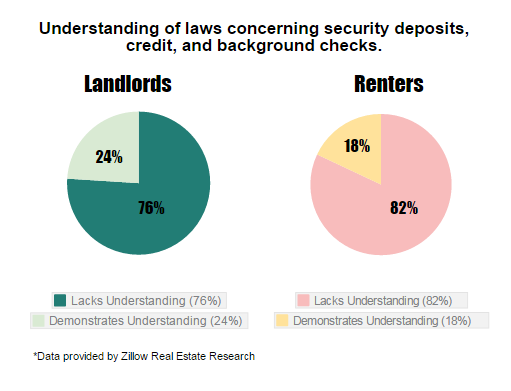
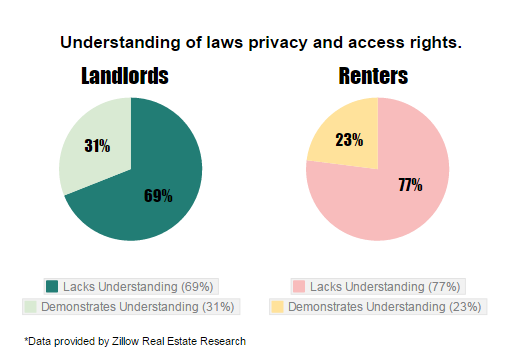
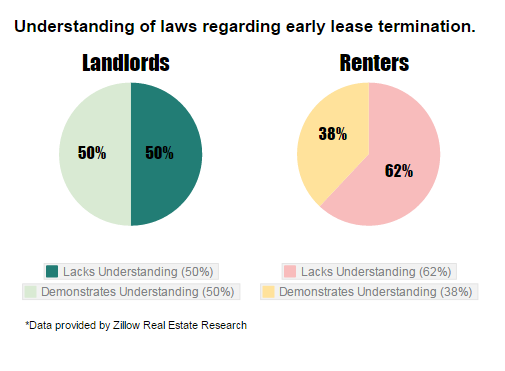
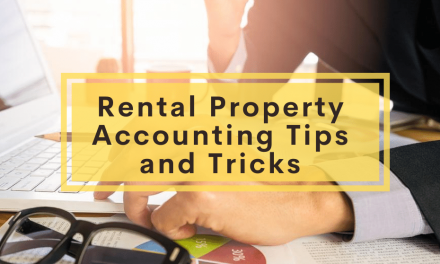




What is the landlord took everything you have did not notify you would get anything
Can you give me a little more context so I can better help? Are you referring to a landlord keeping a security deposit after you’ve moved out or did the landlord come in and take all your possessions or something else?
No I didn’t renew my lease I moved out leaving my girlfriend their at apartment she is disabled receiving SSI she lived there for almost 2 years not me now remember I didn’t renew my lease now years later that landlord is garnishing my hard earned money each week 25% how can they do this without me living there and renewing my part of the lease
I have a roommate in my home. He’s lived as a roommate for six years. Can he claim common law while sharing my property and try to take it from me?
Hi Camie,
That seems unlikely, while you wouldn’t be able to stop someone from making that claim, he would have to prove that you met the qualification for a common law relationship, which usually takes more than living together. Common law partners need evidence like sharing a bank account, owning a property together, listing each other as beneficiaries or partners on important documents or employment records, for examples. If you are just roommates, I would assume that a roommate cannot take a property you own from you. That said, you also need to take into account how your state and local jurisdiction handle common law relationships. You should speak with an attorney who will be able to advise you on what to do and how to fight this claim; an attorney in your area is really the only one qualified to confirm with certainly how this would be handled.